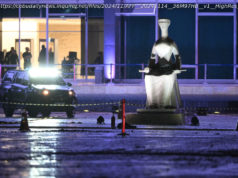The 22nd of May marks a tragic anniversary for the United Kingdom, as the nation remembers the victims of two terrorist attacks that occurred on this date. Not only…
Earlier this year, the Westminster confirmed that they would begin to roll out Martyn’s law in venues and arenas across the U. K. this law would tighten security at public venues and require them to have a counter-terrorism plan. Yet many fear that the response to Coronavirus has set back many of the government’s plans and could leave the general public vulnerable.
While the government has introduced provisions to ensure that prisoners charged with terror offences will see out their full prison sentences, the in prison deradicalization programs on offer have been condemned as u fit for purpose or a waste of taxpayers money.
In January of this year, it was revealed that one of Lee Rigby’s killers, Michael Adebolajo, was a voluntary de-radicalisation adviser at the jail where London Bridge attacker Usman Khan was an inmate undergoing rehabilitation.
What lessons have we learnt from the violent terrorist attacks that occurred on the 22nd of May? Terrorism expert, Dr David Lowe, a senior research fellow, at Leeds Beckett University shared his opinions on the UK’s current anti-terror programmes and just how Coronavirus could impact the war on terror.
So for example, where there’s a large open-air event, there are barriers, put in places to prevent a vehicle attack and entrances to public buildings are now more secure.






